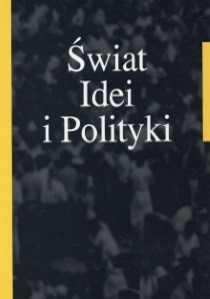Victimless crimes in the light of the Polish Constitution and the jurisprudence of Constitutional Court
DOI:
https://doi.org/10.34767/SIIP.2018.17.16Keywords:
libertatianism, constitutionalism, paternalism, seatbelts, abortion, marijuanaAbstract
The term “victimless crimes” is one of the leading concepts of American criminology, also used by libertarian circles. It assumes that
acts that do not cause harm to the other person (or are made with his consent) should be legal.This theory has also found a resonance in American constitutionalism, whereas in Polish science of constitutional law this concept is virtually unknown. The case law of the Constitutional Tribunal is also more conservative and paternalistic than libertarian. The Tribunal did not consider unconstitutional provisions to drive a car with fastened seatbelts. Possession of marijuana for own use also, in the Court’s
opinion, may also be prohibited by Polish law and the justifi cation used typical conservative arguments. The Polish Constitution also protects public morality, which is in direct contradiction to libertarianism. The author of the concept, Edwin Schur, also considered abortion as “victimless crime”. The Constitutional Tribunal has an extremely diff erent position, recognizing the need to protect unborn life. The axiology of the Polish Constitution is closer to the same spirit of Christian democracy than to extreme liberalism.
References
Banaszak B., Konstytucja Rzeczpospolitej Polskiej. Komentarz, Warszawa 2012.
Casey G., Libertarian Anarchy: Against the State, Londyn–Nowy Jork 2012.
Dziennik Ustaw 1993, nr 61.
Dziennik Ustaw 1998, nr 147.
Dziennik Ustaw 1996, nr 139.
Dziennik Ustaw 1977, nr 38.
Greßler M., Moralność publiczna jako wyznacznik treści pojęcia wolność gospodarcza, „Prawo Kanoniczne” 2015, nr 58/2.
Orzeczenie Europejskiego Trybunału Praw Człowieka Otto Preminger Institute v. Austria z dnia 20 września 1994 roku (skarga nr 13470/87).
Orzeczenie TK z dnia 20.10.2010 r., P 37/09, OTK-A 2010, nr 8, poz. 79.
Orzeczenie TK z dnia 28 maja 1997 r., sygn. akt K. 26/96.
Rothbard M., For a New Liberty: The Libertarian Manifesto, Auburn 2006.
Schur E., Badeau H, Victimless crimes: two sides of a controversy, Prentice-Hall, 1974.
Schur E., Crimes without victims: deviant behavior and public policy: abortion, homosexuality, drug addiction, Prentice-Hall 1965.
Stephens O.Jr., Scheb II J., American Constitutional Law, Vol. II: Civil Rights and Liberties, Belmont 2008.
Wyrok TK z dn. 25 lutego 1999 r., K 23/98.
Wyrok TK z dn. 2 kwietnia 2001 r., SK 10/00.
Wyrok TK z dn. 4 listopada 2014 r., SK 55/13.
Wyrok TK z dnia 6 października 2015 r., sygn. akt SK 54/13.
Wyrok TK z dnia 9 lipca 2009 r., sygn. akt SK 48/05.

